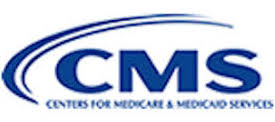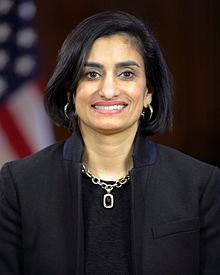PA Health Policy Update for July 25
The following is an update of selected state health policy developments in Pennsylvania from July 21 – July 25. (Some of the language used below is taken directly from state documents).
Fiscal Year 2025-26 Budget Update
Governor Shapiro and legislative leaders continue to negotiate a final Fiscal Year (FY) 2025-26 budget agreement. The state House of Representatives and Senate are currently in recess pending a final budget agreement.
Centers for Medicare & Medicaid Services 
The Centers for Medicare & Medicaid Services (CMS) has informed states, including Pennsylvania, that it “does not anticipate approving new state proposals of section 1115 demonstration expenditure authority that allow for expanded continuous eligibility or extending existing section 1115 demonstration authority for expanded continuous eligibility, beyond what is required or available under the Medicaid or CHIP statutes.” This will likely prevent Pennsylvania from implementing continuous eligibility for children on Medicaid until the age of six and 12 months of Medicaid coverage to individuals leaving state correctional facilities.
Department of Human Services
The Department of Human Services (DHS) has issued its report on Medicaid managed care enrollment in Pennsylvania for the month of June 2025.
DHS has announced that the Human Services Provider Directory has moved to a new web address. The new address is https://www.humanservices.dhs.pa.gov/human_service_provider_directory/.
Department of Health
The Department of Health (DOH) has announced the launch of seven new training opportunities to assist health care providers reduce overdose risk and improve patient outcomes. Training is available online and in-person at no cost and includes continuing education credits for health care providers. Find additional information in this press release.
Pennsylvania Health Care Cost Containment Council 
The Pennsylvania Health Care Cost Containment Council (PHC4) has announced the release of its Cardiac Procedures Report, which includes results for six cardiac procedures performed in Pennsylvania acute care hospitals from January 1, 2022 through December 31, 2023. This report displays hospital-specific ratings for in-hospital mortality, readmissions, extended postoperative length of stay, volume of cases, and average hospital charges.
Board of Dentistry
The State Board of Dentistry has published final form rulemaking to implement licensure by endorsement for dentists. The rulemaking is effective upon its publication in the Pennsylvania Bulletin. Find the final rulemaking here.
Board of Examiners in Speech-Language Pathology and Audiology
The State Board of Examiners in Speech-Language Pathology and Audiology has published final form rulemaking to implement licensure by endorsement. The rulemaking is effective upon its publication in the Pennsylvania Bulletin. Find the final rulemaking here.
Around the State

- Spotlight PA has published a piece on the closure of pharmacies across Pennsylvania and the broken payment system that’s being blamed for their closure.
- Pennsylvania’s ongoing budget impasse and the impact it will potentially have on schools, county governments, and mass transit was the focus of an article published by The Philadelphia Inquirer.
- PennLive has written an article about the potential for additional rural hospital closures due to the federal changes in H.R. 1 that will impact Medicaid funding for hospitals.
Stakeholder Meetings
DHS – Long-Term Services & Supports Subcommittee – August 6
The Long-Term Services and Supports (LTSS) Subcommittee of the Medical Assistance Advisory Committee (MAAC) will hold its next public meeting on August 6 at 10:00 a.m. The meeting will be held virtually. Register to participate here.
DOH – Organ Donation Advisory Committee – August 7
The Organ Donation Advisory Committee will hold a public meeting on Thursday, August 7 from 10:00 a.m. to 1:30 p.m. The meeting will be held in person and virtually. Find additional information and details on how to participate in this Pennsylvania Bulletin notice.
DOH – Infant Hearing Screening Advisory Committee – August 7
The Infant Hearing Screening Advisory Committee will hold a public meeting on Thursday, August 7 from 12:00 p.m. until 3:00 p.m. at 6340 Flank Drive, Harrisburg, PA 17112. The meeting will be conducted in person only. Find information on how to RSVP in this Pennsylvania Bulletin notice.




 In its letter to members of the state’s congressional delegation, SNAP wrote on behalf of private Pennsylvania safety-net hospitals that
In its letter to members of the state’s congressional delegation, SNAP wrote on behalf of private Pennsylvania safety-net hospitals that In her commentary Verma rebuts these criticisms, maintaining that the proposed regulation seeks to ensure that states pay their fair share of their Medicaid partnership with the federal government, raise that share in a manner consistent with federal guidelines, and spend it in ways that fall within regulatory standards. She also maintains that the regulation will foster greater transparency and accountability for the Medicaid program.
In her commentary Verma rebuts these criticisms, maintaining that the proposed regulation seeks to ensure that states pay their fair share of their Medicaid partnership with the federal government, raise that share in a manner consistent with federal guidelines, and spend it in ways that fall within regulatory standards. She also maintains that the regulation will foster greater transparency and accountability for the Medicaid program. Initiatives to be introduced in the coming months include (as described in the blog post):
Initiatives to be introduced in the coming months include (as described in the blog post): According to the news release, those changes include:
According to the news release, those changes include: